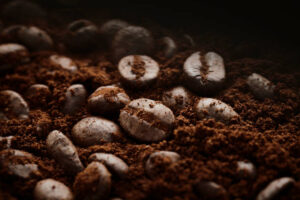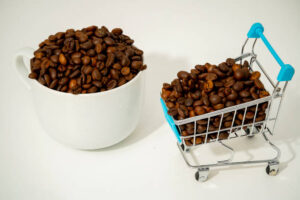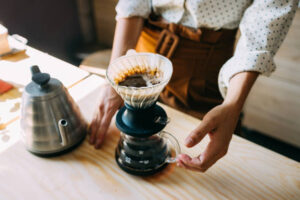Nothing beats a freshly brewed cup of coffee to start your day, but how long does brewed coffee last before it loses its flavor? This question might sound trivial, but understanding the shelf life of your brewed coffee can significantly impact your daily caffeine fix. In this blog post, we will explore the factors that affect the longevity of brewed coffee, practical tips on storing it, and signs that it’s time to brew a fresh pot. If you’re a coffee lover looking to maximize the enjoyment of every cup, keep reading.
What Affects the Shelf Life of Brewed Coffee?
The longevity of brewed coffee can be influenced by several factors. These include the type of coffee beans used, the brewing method, and even the container in which the coffee is stored. High-quality beans tend to maintain their flavor longer, while certain brewing methods like cold brew can extend the coffee’s shelf life. Additionally, using an airtight container can help preserve the coffee’s freshness for a longer period.
Types of Coffee Beans
The type of coffee beans you use can greatly affect the shelf life of your brewed coffee. Arabica beans, known for their superior quality and flavor, generally last longer than Robusta beans. The roasting process also plays a role; lighter roasts tend to maintain their flavor better over time compared to darker roasts.
Brewing Methods
Different brewing methods can also impact the longevity of your coffee. For instance, cold brew coffee is known to last longer than hot brewed coffee due to its lower acidity and slower extraction process. Pour-over and French press methods may offer a richer flavor but often don’t last as long as cold brew.
Storage Conditions
How you store your brewed coffee can make a significant difference in its shelf life. Using an airtight container and refrigerating your coffee can help maintain its freshness. Avoid leaving your coffee at room temperature for extended periods, as this can lead to a rapid loss of flavor and quality.
How Long Can You Leave Brewed Coffee at Room Temperature?
Leaving brewed coffee at room temperature is not ideal for maintaining its flavor and quality. Generally, brewed coffee left at room temperature starts to lose its flavor within 30 minutes to an hour. After this period, it can become increasingly bitter and stale.
Immediate Consumption
Ideally, brewed coffee should be consumed within 30 minutes to an hour for the best flavor. This is when the coffee is at its peak, offering the most aromatic and flavorful experience.
Beyond One Hour
If you leave your coffee out for more than an hour, you’ll likely notice a significant decline in its taste. The coffee will start to oxidize, becoming bitter and less enjoyable. It’s best to avoid consuming coffee that’s been left out for more than two hours.
Overnight Storage
Never leave brewed coffee at room temperature overnight. Not only will the flavor degrade dramatically, but it can also become a breeding ground for bacteria. Always store your coffee in the refrigerator if you plan to drink it later.
Refrigerating Brewed Coffee
Refrigerating your brewed coffee can extend its shelf life, allowing you to enjoy it later without a significant loss in quality. However, there are some best practices to follow to ensure your coffee remains as fresh as possible.
Proper Containers
Using an airtight container is crucial when refrigerating brewed coffee. This helps prevent the coffee from absorbing any odors from other foods in the fridge, which can alter its flavor. Glass containers with tight-fitting lids are often the best choice.
Time Frame
Brewed coffee can last in the refrigerator for up to 3-4 days. However, for the best flavor, it’s recommended to consume it within 24 hours. Beyond this period, the coffee may start to taste stale and less enjoyable.
Reheating Tips
When you’re ready to drink your refrigerated coffee, avoid using a microwave to reheat it. Microwaving can cause the coffee to taste burnt. Instead, gently reheat your coffee on the stove over low heat.
Freezing Brewed Coffee
Freezing brewed coffee is another option for extending its shelf life. While this method is not as commonly used, it can be effective if done correctly.
Preparing for Freezing
Before freezing your coffee, allow it to cool to room temperature. Pour the coffee into ice cube trays or airtight containers, leaving some space for expansion. This will make it easier to reheat individual portions without thawing the entire batch.
Shelf Life in the Freezer
Brewed coffee can last in the freezer for up to 2-3 months. However, for the best flavor, it’s recommended to consume it within one month. The longer it stays frozen, the more its quality may degrade.
Thawing and Reheating
To enjoy your frozen coffee, simply thaw it in the refrigerator overnight. Reheat the coffee gently on the stove, avoiding the microwave to preserve its flavor. You can also use coffee ice cubes to chill your iced coffee without diluting it.
Signs Your Brewed Coffee Has Gone Bad
Knowing when your brewed coffee has gone bad can save you from a disappointing cup and potential health risks. Here are some telltale signs that it’s time to brew a fresh pot.
Off Smell
One of the first signs that your brewed coffee has gone bad is a strange or off smell. Fresh coffee has a pleasant, aromatic scent, while old coffee may smell sour or rancid.
Bitter Taste
If your coffee tastes unusually bitter or stale, it’s likely past its prime. Fresh coffee has a rich, smooth flavor, while old coffee can be harsh and unpleasant to drink.
Mold Growth
In rare cases, brewed coffee can develop mold if left out for too long or stored improperly. If you notice any mold growth, discard the coffee immediately and thoroughly clean your container.
Practical Tips for Keeping Your Coffee Fresh
Maintaining the freshness of your brewed coffee is crucial for an enjoyable drinking experience. Here are some practical tips to help you keep your coffee fresh for longer.
Use Fresh Beans
Always start with fresh, high-quality coffee beans. Grind your beans just before brewing to maximize their flavor and aroma. Store your beans in an airtight container to keep them fresh.
Optimal Brewing Techniques
Follow optimal brewing techniques to ensure the best flavor. Use the right coffee-to-water ratio, and make sure your water temperature is between 195-205°F (90-96°C) for optimal extraction.
Proper Storage
Store your brewed coffee in an airtight container and refrigerate it if you don’t plan to drink it immediately. Avoid leaving your coffee at room temperature for extended periods.
The Importance of Freshness in Coffee
Freshness is key to enjoying a delicious cup of coffee. The flavor and aroma of coffee are at their peak when it’s freshly brewed. Over time, these qualities degrade, leading to a less enjoyable experience.
Impact on Flavor
Fresh coffee offers a rich, complex flavor profile that diminishes over time. The longer brewed coffee sits, the more its flavor compounds break down, resulting in a flat, bitter taste.
Aromatic Experience
The aroma of coffee is an essential part of the drinking experience. Freshly brewed coffee has a strong, pleasant aroma that fades as the coffee sits. To fully enjoy your coffee, drink it while it’s fresh.
Health Benefits
Fresh coffee also retains more of its beneficial antioxidants. These compounds can degrade over time, reducing the health benefits of your coffee. To maximize these benefits, consume your coffee shortly after brewing.
FAQ Section
Q1: How long does brewed coffee last at room temperature?
A1: Brewed coffee starts to lose its flavor within 30 minutes to an hour at room temperature. It is best to consume it within this time frame.
Q2: Can I refrigerate brewed coffee?
A2: Yes, refrigerating brewed coffee can extend its shelf life. Use an airtight container and consume it within 3-4 days for the best flavor.
Q3: Is it safe to freeze brewed coffee?
A3: Yes, you can freeze brewed coffee for up to 2-3 months. Thaw it in the refrigerator overnight and reheat gently on the stove.
Q4: What are the signs that brewed coffee has gone bad?
A4: Signs that brewed coffee has gone bad include an off smell, bitter taste, and, in rare cases, mold growth. If you notice any of these signs, it’s time to brew a fresh pot.
Q5: How can I keep my brewed coffee fresh for longer?
A5: To keep your brewed coffee fresh, use high-quality beans, follow optimal brewing techniques, and store it properly in an airtight container in the refrigerator.
Conclusion
Understanding how long brewed coffee lasts and how to store it properly can make a significant difference in your coffee-drinking experience. By following the tips outlined in this post, you can enjoy fresh, flavorful coffee every time. Remember to use fresh beans, optimal brewing techniques, and proper storage methods to keep your coffee tasting its best. If you’re passionate about coffee and want to learn more, consider exploring further resources or consulting with coffee experts to enhance your knowledge and skills. Happy brewing!





